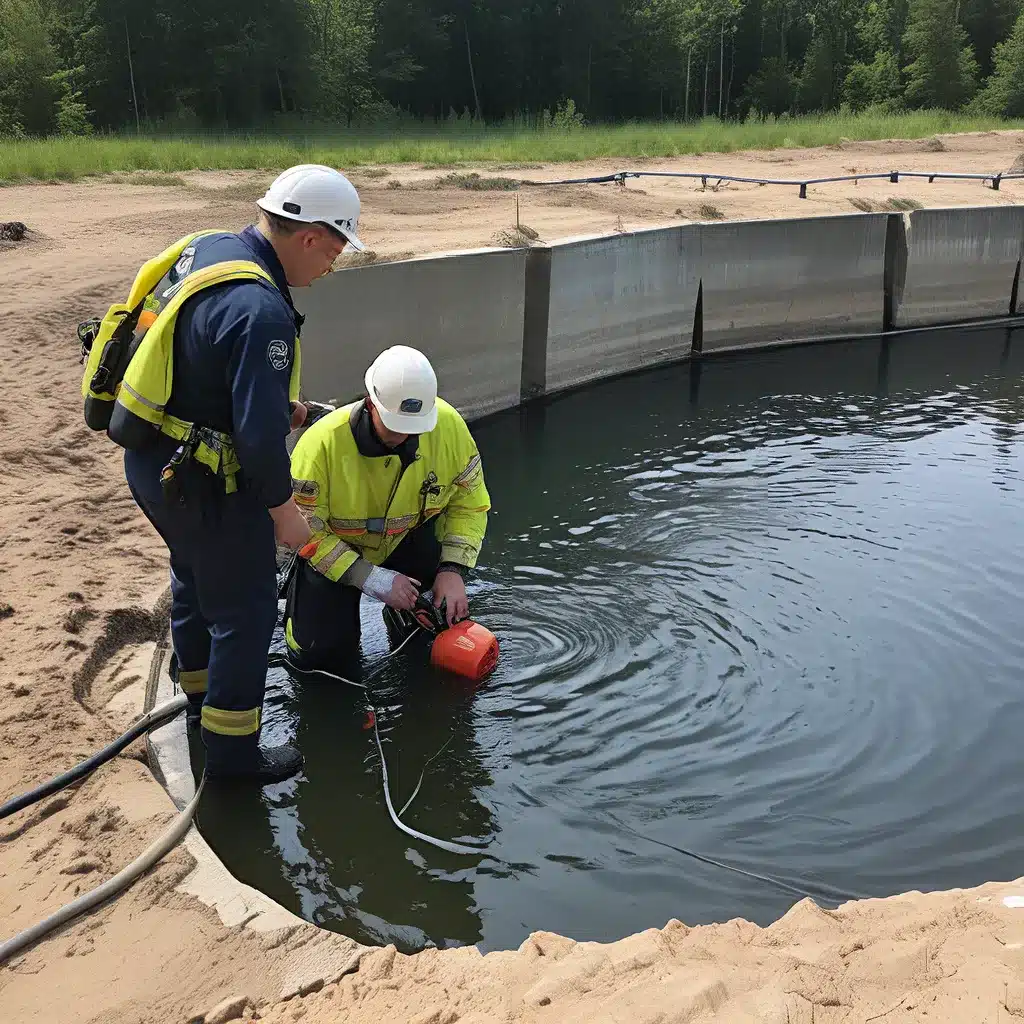
Drowning in Emergencies: The Unsung Heroes of Water Treatment
When a water crisis strikes, who do you call? The fire department? The police? How about the local water treatment plant? That’s right, the dedicated professionals working behind the scenes to ensure our taps keep flowing are often the first line of defense in water-related emergencies.
As a former water treatment operator myself, I can attest to the vital role these individuals play in keeping our communities safe. It’s a job that often goes unnoticed, but trust me, when disaster strikes, these liquid lifesavers become the MVPs.
Responding to the Unexpected
Picture this: a major water main break floods the streets, leaving homes and businesses without access to clean, running water. Or perhaps a chemical spill contaminates the local reservoir, putting public health at risk. These are the kinds of situations where water treatment professionals spring into action, working tirelessly to mitigate the crisis and restore normalcy.
Lifeguards aren’t the only ones who can be considered first responders. In fact, water treatment operators are often the first to detect and respond to water-related emergencies, using their specialized knowledge and cutting-edge technology to identify the problem, isolate the affected area, and implement effective solutions.
Mastering the Science of Water Safety
It’s easy to take clean, safe water for granted, but the reality is that maintaining water quality and reliability is a highly complex science. Water treatment professionals are not just glorified plumbers – they are highly skilled technicians, chemists, and engineers who undergo extensive training to understand the intricacies of water purification and distribution.
From monitoring pH levels and disinfectant concentrations to tracking contaminant levels and maintaining the integrity of the water infrastructure, these dedicated individuals are constantly vigilant, working around the clock to ensure that the water flowing from our taps is always safe to use and drink.
Advanced Life Support (ALS) training may be the domain of medical professionals, but water treatment operators often possess a similar level of expertise when it comes to their field. They must be well-versed in the latest water treatment technologies, regulatory guidelines, and emergency response protocols – skills that make them indispensable during a crisis.
Unsung Heroes in Action
Think about the last time a major water emergency made headlines. Perhaps it was the Flint water crisis, where lead contamination threatened the health of an entire community. Or maybe it was the boil-water advisories that plagued cities after a severe storm or natural disaster. In these situations, the true heroes aren’t the politicians or bureaucrats making the headlines – they’re the water treatment professionals working tirelessly behind the scenes to restore safe, reliable water service.
One such example is the story of John, a water plant operator in a small Midwestern town. When a powerful tornado ripped through the area, it caused significant damage to the local water infrastructure, leaving the community without access to clean water. John and his team sprang into action, using their specialized knowledge and emergency response training to quickly identify the problem, isolate the affected areas, and implement temporary fixes to restore water service.
Underline: Throughout the long hours and grueling work, John and his team never wavered, driven by a deep sense of responsibility to their community. Their quick thinking and unwavering dedication ensured that the town’s residents had access to the most essential resource of all – clean, safe water.
The Unsung Heroes of Water Treatment
While the firefighters and paramedics who respond to emergencies often get the spotlight, the truth is that water treatment professionals play a vital role in keeping our communities safe and healthy. They are the unsung heroes who toil behind the scenes, working tirelessly to ensure that the water flowing from our taps is always clean, safe, and reliable.
So, the next time you turn on your faucet and take a refreshing sip of water, remember the dedicated men and women who make that possible. They may not wear capes or sirens, but they are the true liquid lifesavers, ready to spring into action at a moment’s notice to protect our most precious resource.
In fact, I’d argue that water treatment professionals are the real-life superheroes of the environmental services industry, using their specialized knowledge and technical expertise to safeguard our communities in times of crisis. And while they may not seek the spotlight, they deserve our utmost respect and gratitude for the crucial role they play in keeping us all safe and healthy.
So, the next time you see a water treatment operator in your community, be sure to give them a well-deserved pat on the back. After all, they may just be the ones who save the day when disaster strikes. And that’s a superpower worth celebrating.


